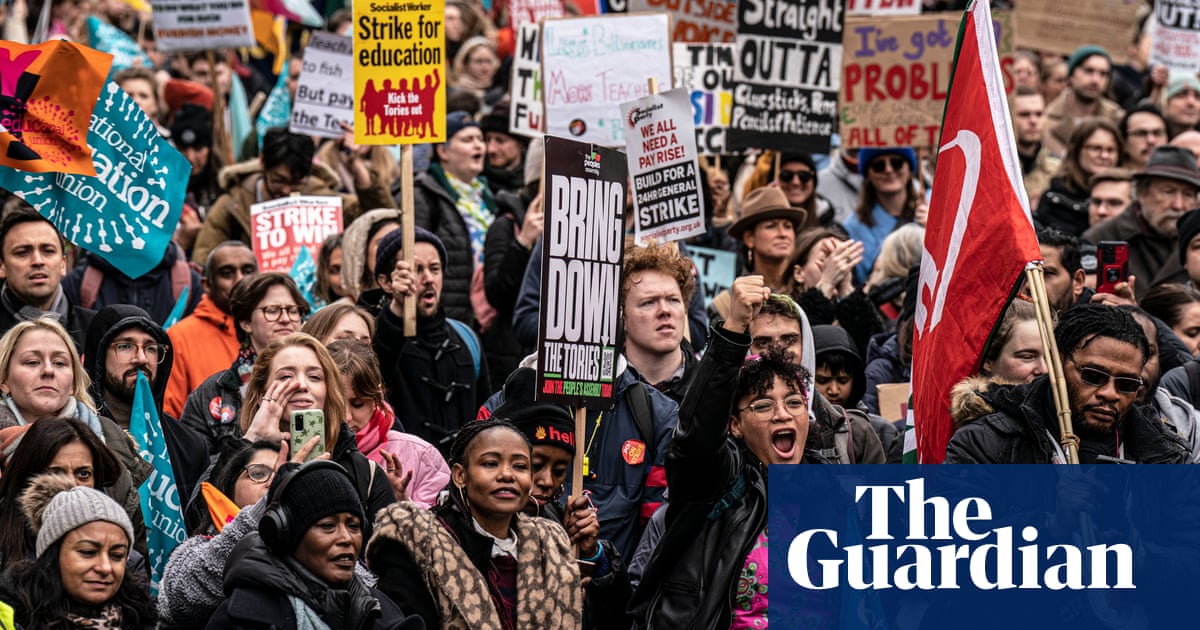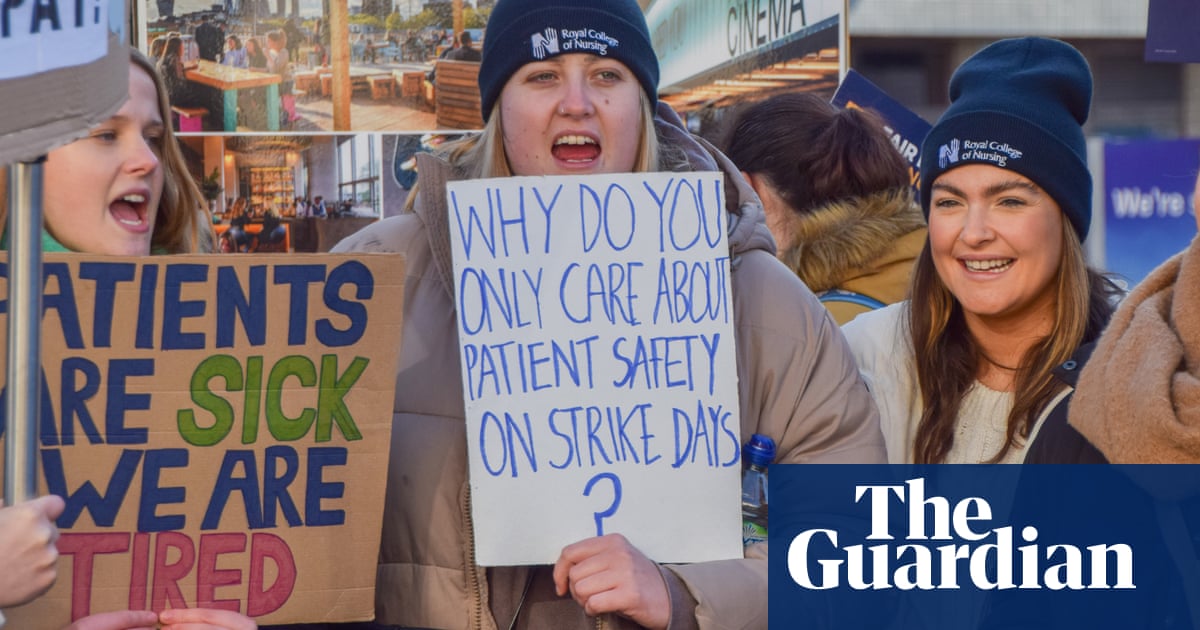
The biggest nursing strike in NHS history is set to take place before Christmas after union officials said that “large swathes of the country” had voted for industrial action.
Patients who are already facing record waiting lists are now likely to see operations and appointments delayed or cancelled. This is set to be the first national strike in the history of the Royal College of Nursing (RCN).
One union source said this weekend: “This will see the majority of services taken out, and picket lines across the country.”
The prospect of nurses across the NHS taking strike action over pay will be a huge challenge to prime minister Rishi Sunak and chancellor Jeremy Hunt, who are confronted with a fiscal hole in the nation’s finances of up to £50bn.
It will also be a big test of the government’s resolve over pay constraints as it deals with strike threats across the public sector in the face of the highest inflation since the 1980s.
Union officials say that since the Conservatives took power in 2010, the pay of some experienced nurses has fallen by 20% in real terms. They had called for a pay award of 5% plus inflation – a total of about 15%.
But the government said the average basic annual pay for nurses would increase from about £35,600 to around £37,000 from March 2022, a rise of just 4%.
NHS bosses will be concerned that a national nurses’ strike will compound the crisis in the country’s hospitals. Figures released in October revealed that a record 7 million people were waiting for hospital treatment in England at the end of August.
More than 300,000 members of the RCN, Britain’s largest nursing union, were balloted over strike action – the biggest in the union’s history.
Under the RCN protocols for strikes, any “life-preserving” care is maintained. Life-preserving services include emergency interventions, maintenance of therapeutic services and urgent diagnostic procedures. It would mean nurses in critical care units and A&E departments would be exempt from taking part.
The RCN says ministers have failed to address a workforce crisis and that the “exploitation of nursing staff cannot be tolerated any longer”. An analysis by the Nuffield Trust published earlier this year found that 40,365 nurses quit the NHS in the year to June 2022 – equivalent to one in nine.
NHS England has launched an effort to recruit tens of thousands of nurses to help fill a record number of vacancies. There are more than 46,800 nursing, midwifery, and health visitor vacancies in the NHS in England alone.
The counting of the RCN ballots is continuing, but officials expect to announce shortly that the majority of nurses in some of the UK’s main trusts and health organisations have voted to strike.
Pat Cullen, RCN general secretary and chief executive, said: “Patients are at great risk when there aren’t enough nurses. Huge numbers of staff – both experienced and newer recruits – are deciding they cannot see a future in a nursing profession that is not valued nor treated fairly.
“Our strike action will be as much for patients as it is for nurses – we have their support in doing this. As we begin action, politicians in every part of the UK will be challenged to back their nursing staff and understand the strength of public support.”
Nurses working in England, Scotland, Wales and Northern Ireland have been balloted.
Unison is also balloting 350,000 NHS staff, including porters, nurses, paramedics and cleaners, about strike action in England, Wales and Northern Ireland. The Unison ballots close later this month. Junior doctors have also voted for a ballot in January.
The ballots, which closed on Wednesday, were conducted at local level within each employer. This means officials will be able to authorise strike action at any NHS employer that passes the ballot thresholds.
In England, Scotland and Wales, the law states that there must be at least a 50% turnout and the majority must vote yes for action to be lawful. There is separate legislation in Northern Ireland.
For years, RCN rules did not support industrial action. These were changed in 1995 to allow strike action so long as it was not detrimental to the interests of patients.
If members support widespread strike action, it will be the first ever strike by the RCN in England, Wales and Scotland. Members in Northern Ireland took strike action for the first time in 2019-20 over pay and staffing levels.
The RCN has not provided any information on the proposed action, but officials say strikes are most likely to take place before Christmas in the event of a yes vote. It recommended that its members vote in favour of strike action.
NHS England sent a letter to NHS trusts and integrated care boards last week over the potential action. It said: “The NHS’s task now is to be prepared for any potential industrial action so there is minimal disruption to patient care and emergency services can continue to operate as normal.”












